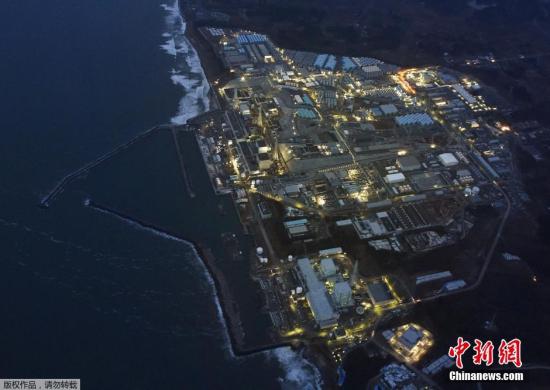China News Service, October 16th. According to a report by Kyodo News on the 15th, the Japanese government basically decided to discharge the waste water containing radioactive tritium from the Fukushima Daiichi Nuclear Power Plant into the sea.
This decision will be finalized at a meeting in October at the earliest.
Data map: Fukushima Daiichi Nuclear Power Plant in Japan.
According to reports, the so-called nuclear sewage is the waste water remaining after cooling the nuclear reactor. Although the Fukushima Nuclear Power Plant has been processing related nuclear sewage, one of the radioactive substances called "tritium" is difficult to remove, causing the sewage to continue to accumulate.
According to reports, at present, all nuclear sewage in Japan is stored in nuclear power plants, but it is expected that by the summer of 2022, the capacity of water tanks for storing nuclear sewage will reach its limit.
Relevant persons said that the Japanese government has basically decided to discharge nuclear water containing tritium into the sea.
According to reports, this decision will definitely affect Japan's image and trigger opposition from fishery people.
Regarding the image damage countermeasures, it is expected that a new conference platform will be set up to promote concreteness.
Discharge into the sea requires equipment construction and review by the Nuclear Regulatory Commission. It is estimated that it will take about two years to start discharge.
Prior to this, the Japanese government will explain how to gain domestic and international understanding, and will discuss with Fukushima Prefecture and fisheries organizations.
Japanese Prime Minister Yoshihide Suga also expressed his desire to draw conclusions as soon as possible, saying "I hope that the government will decide on the handling policy as soon as possible."

